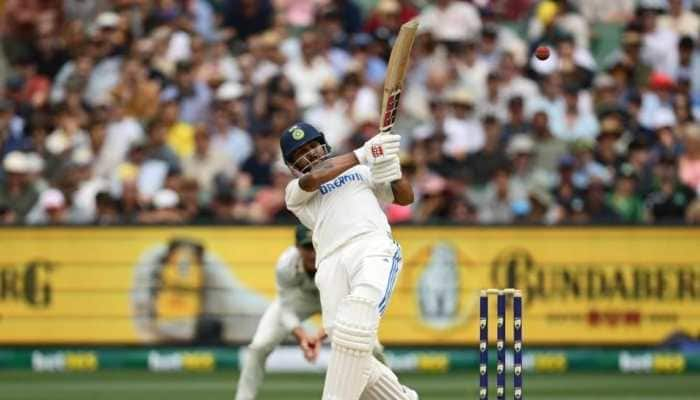Attention men! All you need to know about prostate cancer (Watch video)
Prostate cancer is one of the leading causes of cancer death among men of all races and Hispanic origin populations.
Trending Photos
)
Zee Media Bureau
New Delhi: Prostate cancer is the presence of cancerous cells in the prostate, a small walnut-shaped gland in the male reproductive system.
Also known as carcinoma of the prostate, prostate cancer is the most common cancer among men (after skin cancer) in the US, but it can often be treated successfully, as per American Cancer Society. It is one of the leading causes of cancer death among men of all races and Hispanic origin populations.
Prostate cancer mainly occurs in older men. It is said that about 6 cases in 10 are diagnosed in men 65 years or older. In India, two out of three prostate cancer cases are found in males above 65 years of age.
What is the prostate?
The prostate is a small gland -approximately the size of a walnut- in the pelvis found only in men. The prostate grows bigger as you get older. It is located between the penis and the bladder and surrounds the urethra. The main function of the prostate is to help to help make semen – the fluid that carries sperm. The growth and function of the prostate depends on testosterone, the male sex hormone which is produced in the testes.
Video credit: Prostate Cancer UK/YouTube
The most common prostate problems are an enlarged prostate, prostatitis and prostate cancer.
Signs and symptoms of prostate cancer
Because prostate cancer usually develops slowly, it often has no signs in early stage and this is why a person may not know that he has the condition.
Most common signs and symptoms of prostate cancer include:
- Frequent urination
- Nocturia (increased urination at night)
- Painful urination
- Difficulty starting and maintaining a steady stream of urine
- Blood in the urine
- Blood in the semen
- Discomfort in the pelvic area
- Bone pain (often in the spine, pelvis or ribs)
- Erectile dysfunction
If you have any signs or symptoms that trouble you, make sure that you get them checked promptly by a doctor.
Risk factors for prostate cancer
It is no clear what causes prostate cancer, however, experts believe that there are some factors that might affect a man’s risk of getting the disease. Some possible factors are:
Age – Age is believed to be one major primary risk, because the older a man is, the higher is is risk. The condition is rare in men under 40 years of age, but most cases are found in men aged 50 or older. This implies that a man's risk of getting prostate cancer increases as he gets older.
Genetics – Genetic factor may contribute to prostate cancer risk. Men who have a first degree male relative (such as a father or brother) with prostate cancer are 2 to 3 times more likely to get the condition as compared to the average men. Also, those with two first-degree relatives affected have a fivefold greater risk compared with men with no family history.
Ethnicity – Being black can increase a man's risk of getting prostate cancer. Prostate cancer is more common in black Caribbean and black African men than in white or Asian men although it's not known why this is.
Obesity – Studies have found that obese men have a greater risk of developing more advanced prostate cancer as well as a higher risk of metastasis and death from the condition.
Smoking – Many studies have found a link between smoking and getting prostate cancer as well as an increased the risk of dying from the condition.
Diet – High fat diet has been shown to put men at high risk of prostate cancer. Also, some studies show that men who have diets high in calcium may have a higher risk of prostate cancer. Other studies have indicated that a diet high in red meat and lack of vitamin D may raise a person's chances of developing prostate cancer.
However, studies have also indicated that a Mediterranean diet may reduce a person's risk of getting prostate cancer.
Medication – Some studies suggest daily use of anti-inflammatory medicines can increase the chance of one getting prostate cancer.
A previous cancer – Studies have shown that men who have had certain cancers in the past such as kidney cancer, bladder cancer, lung cancer, thyroid cancer and melanoma skin cancer, have a slightly higher risk of prostate cancer.
Sexually transmitted diseases (STDs) - According to research from the University of Michigan Health System, men who have had gonorrhea have a higher chance of developing prostate cancer.
Treatment
Treatment may not be necessary right away for men diagnosed with very early-stage prostate cancer. Instead, doctors recommend active surveillance if the cancer is not causing symptoms. Alos, some cases of prostate cancer can be cured if treated in the early stages.
Treatments include surgically removing the prostate, radiotherapy, hormone therapy, chemotherapy, biologic therapy, bisphosphonate therapy.
Prevention
There is no specific way to prevent prostate cancer, however, you can reduce your risk if you:
- Eat a healthy diet containing a variety of fruits, vegetables and whole grains.
- Choose foods that are rich in vitamins and minerals instead of supplements.
- Avoid high-fat foods
- Are being physically active and stay at a healthy weight.
- Talk to your doctor if you are experiencing any signs and symptoms that may worry you or increase your risk.
Besides, some studies suggest that taking 5-alpha reductase inhibitors, including finasteride (Propecia, Proscar) and dutasteride (Avodart), that are used to control prostate gland enlargement and hair loss in men may lower prostate cancer risk.
Stay informed on all the latest news, real-time breaking news updates, and follow all the important headlines in india news and world News on Zee News.
Live Tv







)
)
)
)
)
)
)
)
)
)
